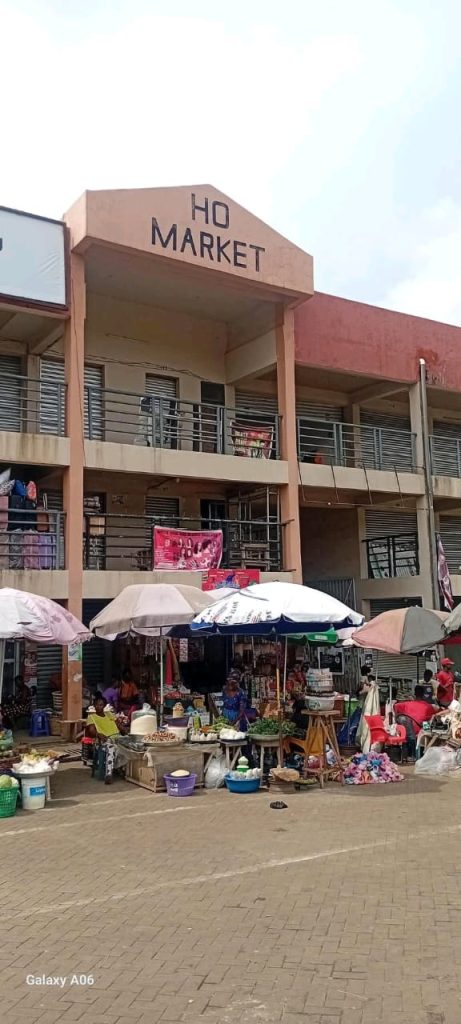The Sanitized Communities Konnect (SANCOK) Foundation has lauded the Ho Municipal Assembly’s initiative to clear hawkers from roadsides adjacent to the main station and market. This action forms part of a broader strategy to reinstate order, enhance road safety, and uplift the municipality’s overall environment. The Foundation views this move as a significant stride toward sustainable urban management, anticipating a more organized and conducive business atmosphere. They commend the Assembly’s leadership for prioritizing public safety and their commitment to long-term sanitation and development objectives. Dr. Fenteng Jacob, CEO of SANCOK, expressed profound admiration for the Assembly’s resolve, emphasizing the courage required for such a bold step and praising their dedication to the municipality’s progress and well-being. The Foundation has pledged unwavering support for the Assembly’s efforts to promote cleanliness, orderliness, and advancement in Ho, expressing confidence in the city’s potential to become a model for sanitation and urban development. They stand ready to collaborate closely with authorities to realize this vision.
However, the decongestion exercise has met with resistance from a segment of traders at the Ho Main Market directly affected by the operation. These traders have voiced their frustration and anxiety regarding their future livelihoods. They claim to have legally occupied the cleared area since 2017, consistently paying rent to the Assembly throughout this period. These allegations raise concerns about the due process followed during the eviction and the potential disruption to established business operations. The traders further accuse the acting Market Queen of orchestrating the eviction using disruptive tactics, claiming she employed “ghetto boys” who allegedly caused chaos, theft of goods, destruction of stands, and damage to personal property. These accusations add another layer of complexity to the situation, highlighting the need for a thorough investigation into the circumstances surrounding the eviction process. The traders’ claims contrast sharply with the SANCOK Foundation’s positive assessment of the operation, underscoring the differing perspectives on the initiative and the need for a balanced approach.
The lack of alternative stalls or relocation arrangements has left the displaced traders in a precarious situation. They have appealed to the Municipal Assembly for intervention, seeking a resolution that addresses their immediate need for trading spaces. Furthermore, they have contacted the Legal Aid Office and the Agbogbomefia of Asogli for assistance, indicating the seriousness of their grievance and their determination to pursue legal and traditional avenues for redress. This appeal for external intervention underscores the importance of finding a swift and equitable solution to the traders’ displacement. The situation highlights the potential social and economic consequences of urban development projects, emphasizing the need for careful planning and consideration of the impact on affected communities.
The displacement of these traders raises concerns about potential revenue loss for the Assembly. Without prompt reallocation of trading spaces, the Assembly risks losing the rent payments from these vendors, which could impact the municipality’s financial resources. This potential financial implication underscores the need for a sustainable solution that addresses both the needs of the displaced traders and the Assembly’s revenue stream. Balancing these competing interests will be crucial for maintaining public support for future development initiatives. The Assembly faces a critical decision in balancing public order and safety with the livelihood concerns of these displaced traders. A balanced resolution is essential to maintain public trust and ensure future development initiatives are met with support.
The Assembly must carefully consider the long-term implications of its actions and strive to create a solution that addresses both the need for urban renewal and the protection of the traders’ livelihoods. This situation presents an opportunity for the Assembly to demonstrate its commitment to inclusive development, where the benefits of progress are shared equitably among all members of the community. A successful resolution will require open dialogue, a commitment to fairness, and a willingness to collaborate with all stakeholders to find a mutually beneficial outcome.
The incident underscores the complexities of urban development and the challenges of balancing competing interests. While the goal of creating a more organized and safe urban environment is laudable, it’s essential to ensure that such initiatives are implemented in a way that minimizes disruption to the lives and livelihoods of affected communities. This situation highlights the need for proactive planning, transparent communication, and a commitment to finding solutions that benefit all stakeholders involved. Ultimately, the success of urban development projects depends on the ability to foster a sense of shared ownership and responsibility, ensuring that progress is achieved in a way that is both sustainable and equitable.


